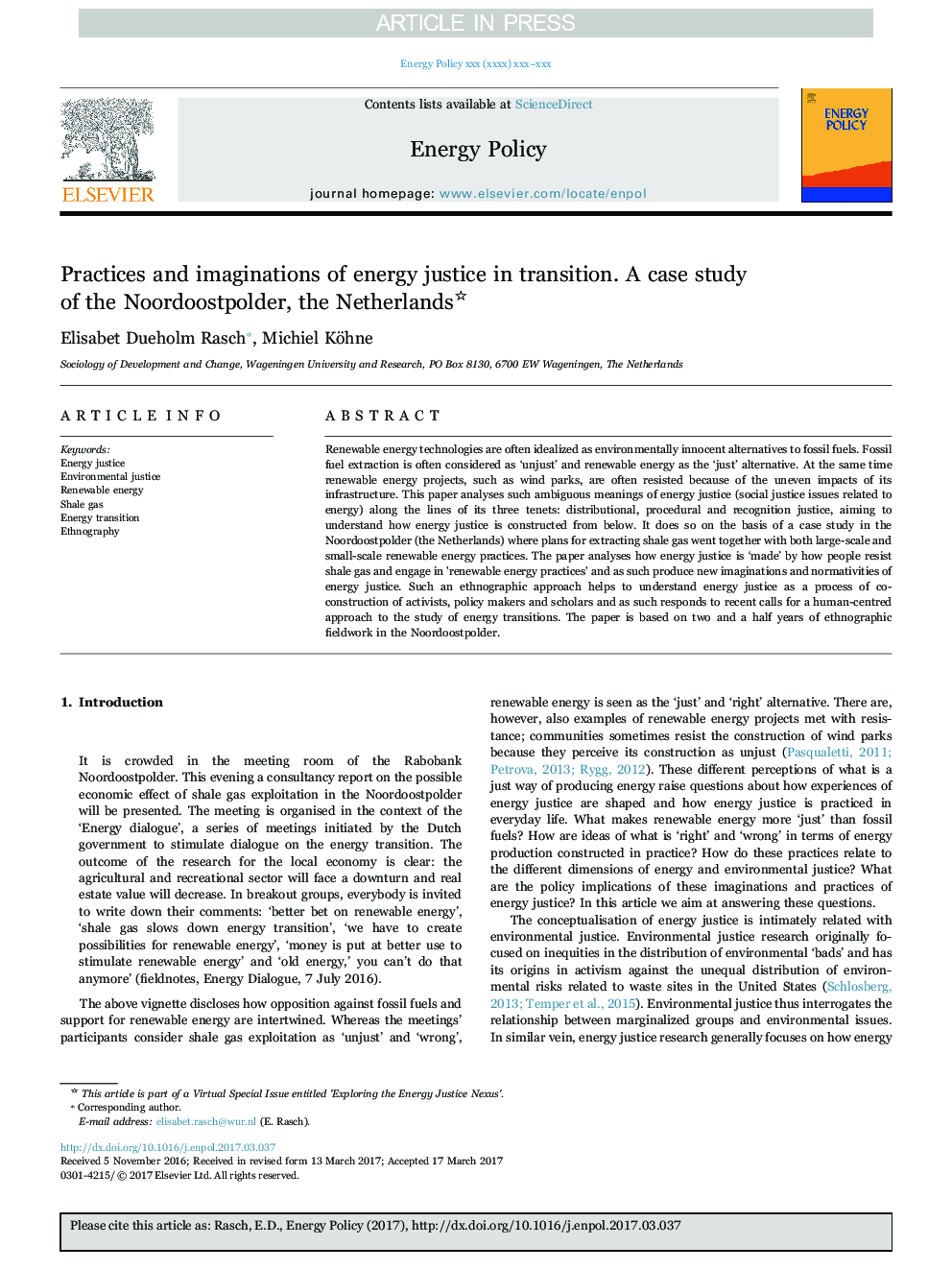| Article ID | Journal | Published Year | Pages | File Type |
|---|---|---|---|---|
| 5106050 | Energy Policy | 2017 | 8 Pages |
Abstract
Renewable energy technologies are often idealized as environmentally innocent alternatives to fossil fuels. Fossil fuel extraction is often considered as 'unjust' and renewable energy as the 'just' alternative. At the same time renewable energy projects, such as wind parks, are often resisted because of the uneven impacts of its infrastructure. This paper analyses such ambiguous meanings of energy justice (social justice issues related to energy) along the lines of its three tenets: distributional, procedural and recognition justice, aiming to understand how energy justice is constructed from below. It does so on the basis of a case study in the Noordoostpolder (the Netherlands) where plans for extracting shale gas went together with both large-scale and small-scale renewable energy practices. The paper analyses how energy justice is 'made' by how people resist shale gas and engage in 'renewable energy practices' and as such produce new imaginations and normativities of energy justice. Such an ethnographic approach helps to understand energy justice as a process of co-construction of activists, policy makers and scholars and as such responds to recent calls for a human-centred approach to the study of energy transitions. The paper is based on two and a half years of ethnographic fieldwork in the Noordoostpolder.
Related Topics
Physical Sciences and Engineering
Energy
Energy Engineering and Power Technology
Authors
Elisabet Dueholm Rasch, Michiel Köhne,
